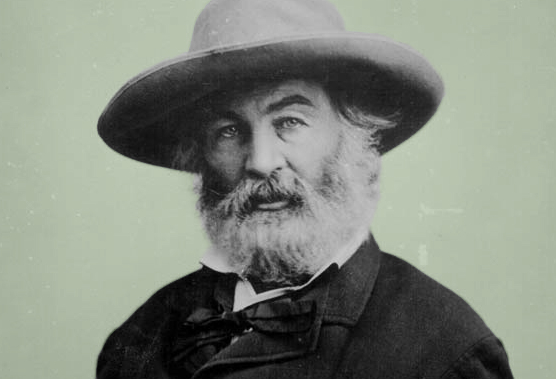
Here, Walt Whitman writes to Abraham Paul Leech about his living arrangements in Whitestone, Queens. He reflects on the overall pleasantness of its scenery and the unpleasantness of its inhabitants. Woodbury, the locale he refers to as “Purgatory Place” in the beginning of the letter, refers to Woodbury, NY, where he taught at a schoolhouse in 1940.
Whitestone, Queens, March 25, 1841
By what Overacre would call an “exceedingly natural and extensive concatenation of radical causes,” I begin thinking, now that I sit down to write to you, of the time and place that I used to hail from some eight or nine months ago. —You no doubt remember those precious missives that sprang almost diurnally from my teeming hand at Purgatory Place.—But that Place! O, it makes my nerves quiver as I think of it. —Yes, anathema! anathema, curse, curse, upon thee thou fag end of all earthly localities, infernal Woodbury! But I fear I am getting warm.—Let me push the subject no farther.—The fact is, the most distant mention of that diabolical region, that country of buckwheat dough-nuts, and pot-cheese, and rye sweet-cake, always makes me fall a swearing.—Faugh!
Have you never in your travels come across a village where some half dozen principal characters seemed to give a colour and tone to the whole place?—Of such a nature is this Whitestone, which your servant now irradiates with the benign light of his countenance.—The principal feature of the place is the money making spirit, a gold-scraping and a wealth-hunting fiend, who is a foul incubus to three fourths of this beautiful earth.—Unfortunately, too, these “leaders” here, set but a poor example to the rest as regards their strict adherence to the domestick ties and institutions which old Madame Custom has planted and nourished and made at last so deeply rooted among us.—Enough of this however.—Do not think I am going to fall into the splenetic, fault-finding current, on which those Woodbury documents were set afloat.—
I am quite happy here; and when I say this, may I flatter myself that some chord within you will throb “I am glad to hear that?”—Yes, as far perhaps as it falls to mortal lot, I enjoy happiness here. —Of course; I build now and then my castles in the air.—I plan out my little schemes for the future; and cogitate fancies; and occasionally there float forth like wreaths of smoke, and about as substantial, my day dreams.—But, take it all in all, I have reason to bless the breeze that wafted me to Whitestone.—We are close on the sound.—It is a beautiful thing to see the vessels, sometimes a hundred or more, all in sight at once, and moving so gracefully on the water.—Opposite to us there is a magnificent fortification under weigh.—We hear the busy clink of the hammers at morn and night, across the water; and sometimes take a sail over to inspect the works, for you know it belongs to [the] U.S.—
My quarters are quite satisfactory too as regards boarding.—One of the windows of my room commands a pleasant view of the sound.—Another looks to the eas[t] and the great round face of the sun he comes along in the morning, almost seems to kiss me with a loving kiss.—I am generally dressed and ready to receive him at his first appearance. —This said room of mine is something that I much value. —It is my sanctum sanctorum, which profane foot invadeth not. —Its hallowed precincts are forbidden ground to every she in the house, except for absolutely necessary entrances, which concern the vital well-being of its lord.—
I hope this will find you enjoying health and peace. —O that I were Napoleon that I might load the heads of my friends with golden coronets. —My best wishes I waft to you, wrapped up and sealed with a wafer. —May your shadow never be less. —Adieu
Thursday night | March 25
Walter Whitman.
From Selected Letters of Walt Whitman. Whitman, Walt, and Edwin Haviland Miller. Iowa City: University of Iowa Press, 1990.


